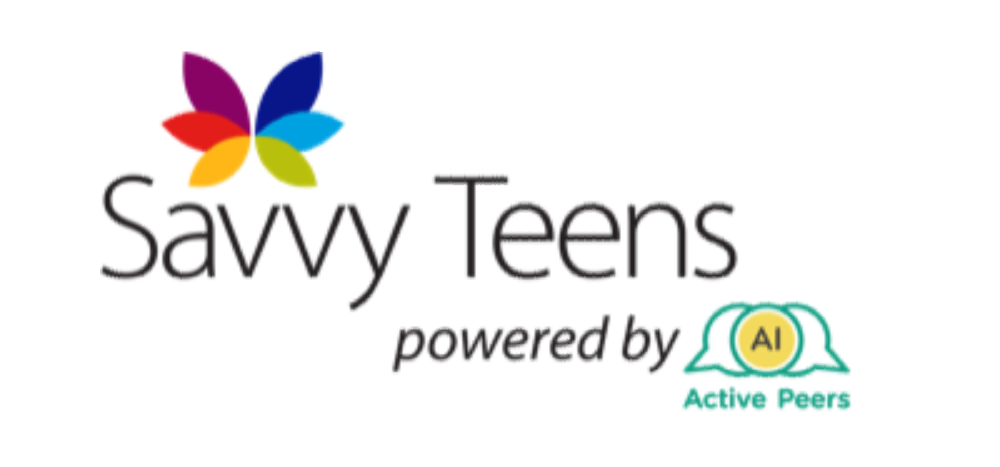Business Transformation, Change and Sustainability
Active Peers AI recently hosted its fifth YouTube Live on “Business Transformation, Change, and Sustainability”.
This Livestream is based on an active peer learning session held by Active Peers AI for Health and Social Care Northern Ireland (HSC) as they wanted to develop the leadership skills of senior staff members in the medical profession.
During the session, Susan used Active Peers AI technology lots of times. For instance, Susan used the Active Peers AI Custom Prompter to facilitate engaging conversations between the participants regarding their leadership experiences. Susan also used the Feedback tool to help the participants evaluate Active Peers AI's technology and help them lock in their learnings.
Apart from a Q&A session with Susan, we also had two guests, Joanne McGinnis and Jocelyn Harpur, from HSC Northern Ireland Leadership Centre join us for an interview with Susan.
Susan's Interview with Joanne
- Joanne has a lot of experience in designing and developing leadership programmes. Susan and Joanne are both big believers in integrating a structured element to enable people to learn from each other so they can discern the principles from other people’s narratives. One of the questions that Susan asked Joanne was regarding ways to encourage people to be more open-minded to new ways of thinking when they are too comfortable in doing things that has served them very well to date. According to Joanne, using a check-in took to understand how people feel about their learning opportunities and the mindset that they are coming to the opportunity with. Joanne reckons that it is crucial to have a growth mindset so that they can actively embrace their learning opportunity. Hence, Joanne thinks it is essential to provide the staff members with vertical learning opportunities to move them out of their comfort zone. One of the ways that Joanne does this in the health and social care sector is to invite guest speakers from other sectors as it allows the staff members to see different ways of working, thus enhancing their creativity in the process.
- Furthermore, Susan points out that as people move through their careers, one of the competencies they need to develop is critical analysis. According to Joanne, the demands for leadership have changed over the last few years and that critical thinking is a highly valued skill. One of the methodologies that Joanne applies is the 70-20-10 method. According to research, 70% of what you know is learnt on the job by experimenting new things, 20% of what you know is learnt through mentoring and coaching, and only 10% is learnt through a formal educational programme. Joanne keeps this in mind when designing leadership programmes. Moreover, Joanne believes that peer consulting is a great way for one to develop their critical analysis skills. During peer consulting, one group will present a leadership challenge while the other group will act as consultants and provide solutions to their problems.
Susan's Interview with Jocelyn
- On the first day that Susan met Jocelyn in person, Jocelyn taught Susan the technique of asking people to come up with ways that something could go entirely wrong. Then, ask them to compare their current ways of working to that list before flipping it into a playbook for best practice. Jocelyn's experience of running this technique with different groups has been very successful as it makes the unknown known. First, Jocelyn finds out what the problems are as perceived by the group and one way to do this is to design a "worst-case scenario". It is an excellent group activity as everyone gets to participate in problem-solving and everyone gets to share their opinions. Once the group figures out the problem, they can then think about what steps they can take to do things differently.
- Regarding the Matching Algorithm and Custom Prompter, Jocelyn thinks it was a great alternative to peer mentoring as it has a structured approach. Jocelyn thinks that it provided great direction for the conversations to take place between different staff members and it brought people together who ordinarily wouldn't have come together.
Q&A Session with Susan
During the Q&A session with Susan, the audience posed the following questions:
1) What skills do you think are the most important for a leader?
Susan believes that the skills a leader need will depend on the stage of leadership that one is at, for instance, a visionary leader will need a different skillset to an innovative leader. Nevertheless, having two-way communication is crucial for any leader. It is important for a leader to communicate their vision or plan but also hear about their team's problems. Susan also reckons that strength is another important skill for a leader to have. A leader should be able to not only back themselves but also other people in their team. Even though the leader might not have all the information they need to make a decision, they should be strong and vulnerable enough to back their team and even the whole organization. Lastly, Susan believes that a leader should be resilient. Susan's definition of resilience is when there is nothing standing in your way but also nothing pushing you forward. Hence, leaders should be resilient enough to say that just because something is good does not mean that it cannot be better.
2) As a leader, what can I do to handle conflicts on my team?
According to Susan, the first thing that you should do is acknowledge the conflict and bring it to the surface. Susan reckons that most conflicts happen due to a difference in values and expectations. There is no right or wrong in a conflict necessarily but it could just be that you and the person you are in conflict with have a different perspective on things. Secondly, it is important for the both of you to co-create how you're going to move forward. This will also prevent future conflicts from happening. Lastly, you can use the conflict to your advantage to have a better relationship with the person you are in conflict with. Susan reckons that you can use the conflict to understand each other better, thus improving your relationship.
3) What are some considerations when developing leaders in the workplace?
Susan believes it is important to ask people why they want to be leaders. There is often a misconception that the only way to progress in one's career is vertically but this is not always the case. For instance, if someone wants more prestige but does not want more responsibility, then becoming a leader is not the best option for them as they can look for prestige somewhere else. e.g. applying for rewards and being the best at what you do so that you can get further recognition at the workplace.
4) How do I introduce change in a workplace whilst ensuring that everyone is happy with the change?
Susan mentions that do not assume a lot of people will not be happy with the change. There will be some people that will be happy and there will be some people that will not be happy but most important, there will be a lot of people who are indifferent to the change and this is the group of people that you should focus on. Susan also reckons that the four building blocks of change by McKinsey are useful in implementing change in the workplace. Firstly, you need to create role models that do what you say as people who were indifferent or unhappy about the change will be more likely to do it if they see their leaders and colleagues doing it. Secondly, you need to make it clear how everyone can follow that path. You need to share what is expected of everyone at work and why. Thirdly, it is important that the system is in place and that the formal mechanisms are working so that everyone can see that the structures, processes, and systems support the changes that are happening in the workplace. Lastly, you need to develop talent and skills and also find out what is working and what is not working for your staff members.












